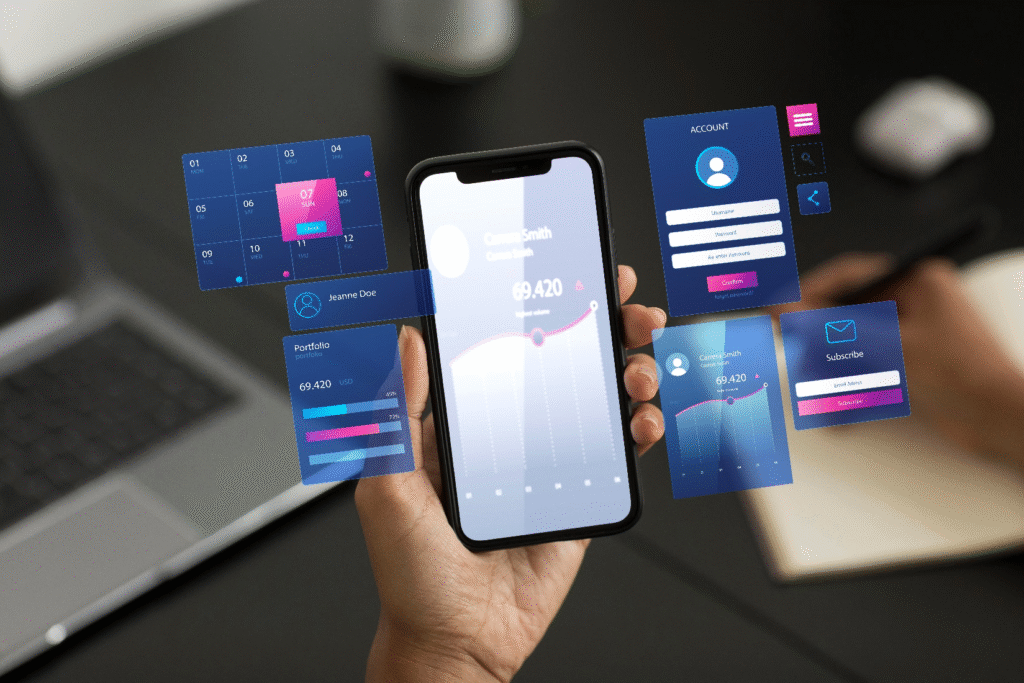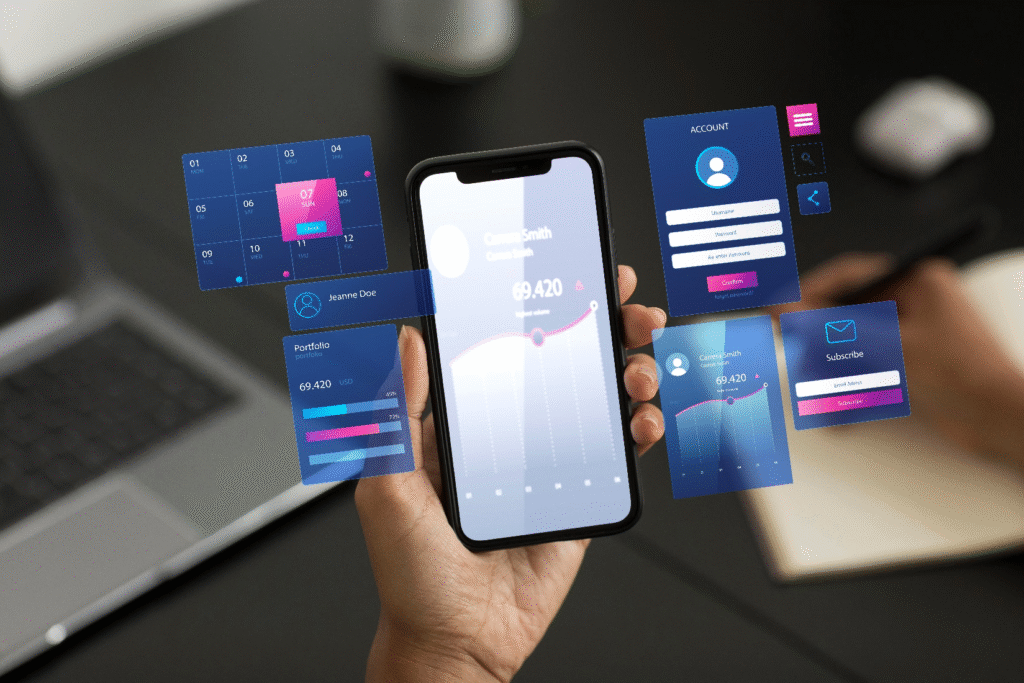
In 2025, businesses continue to invest heavily in app development to stay relevant and accessible. With more people relying on smartphones and web-based platforms, creating a seamless user experience has become more essential than ever. However, before jumping into the process, understanding the app development cost is crucial for planning and budgeting effectively.
This guide provides a detailed look at what you can expect to pay for application development in 2025. From mobile app development to website and app development bundles, we’ll cover all aspects to help you make informed decisions.
Why App Development Costs Vary in 2025
To begin with, application development costs in 2025 vary significantly based on multiple factors. These include app complexity, platform choice, development region, team size, and the technologies used. Whether you’re considering android application development or web app development, each path comes with its own cost structure.
Additionally, businesses must decide between hiring a freelance developer, working with an in-house team, or outsourcing to an agency. Naturally, each option affects pricing and turnaround time.
Average App Development Cost in 2025
Although pricing can fluctuate, here’s a general estimate of average application development costs in 2025:
| Type of App | Estimated Cost (USD) |
| Simple App | $20,000 – $50,000 |
| Medium Complexity App | $50,000 – $120,000 |
| Complex App with Custom Features | $120,000 – $300,000+ |
| Web App Development | $15,000 – $100,000 |
| Android App Development | $25,000 – $150,000 |
It’s worth noting that these figures may increase depending on the scope of work, especially when integrating advanced features such as AI, AR/VR, or blockchain.

Platform-Specific Costs: Android, iOS, or Both?
When considering application development, choosing the right platform significantly impacts your budget. Many businesses opt for android app development first due to Android’s global market share. However, building apps for both iOS and Android simultaneously requires more time and resources.
Alternatively, cross-platform development using application development software like Flutter or React Native has grown popular. This method helps reduce costs while reaching users on multiple platforms efficiently.
In 2025, here’s how platform decisions can affect the overall budget:
- Android development only: Typically costs less due to open-source tools and wider developer availability.
- iOS development only: May be slightly more expensive due to licensing and App Store requirements.
- Cross-platform: Offers savings on development time but may involve trade-offs in performance.
Factors That Influence Mobile App Development Costs
Understanding what drives the cost of mobile app development helps businesses allocate resources smartly. Let’s explore the key factors one by one.
1. App Complexity
Apps with basic features like user login, push notifications, and simple UI are more affordable. However, incorporating advanced features—such as real-time chat, GPS tracking, or machine learning—significantly increases the app development cost.
2. UI/UX Design
In today’s competitive market, users expect intuitive and engaging designs. Custom designs, motion graphics, and animations add to the expense, but they also enhance user retention.
3. Backend Infrastructure
Apps requiring data synchronization, user management, and payment processing need a strong backend. Setting up and maintaining this infrastructure often contributes heavily to mobile app development costs.
4. Development Team Location
Geographic location continues to be a major cost determinant. Here’s a rough breakdown:
- North America: $100–$250/hour
- Western Europe: $70–$200/hour
- Eastern Europe: $40–$100/hour
- Asia: $20–$60/hour
Choosing a team based on budget and communication preferences can help balance quality and cost.
5. App Maintenance and Updates
Once the app is launched, maintenance becomes a recurring expense. Bug fixes, performance improvements, and new feature rollouts typically require 15–20% of the initial development budget annually.
Cost Comparison: Custom vs No-Code App Development
With the rise of no-code and low-code application development software, many small businesses are reconsidering their options. Although no-code platforms offer faster and cheaper deployment, they often lack customization and scalability.
In contrast, custom app development delivers a tailored experience and better long-term ROI. Therefore, if your app requires complex workflows or integrations, investing in full-scale android development or iOS development may be a smarter choice.

Here’s a quick comparison:
| Feature | No-Code Solution | Custom App Development |
| Time to Market | Fast | Moderate to Slow |
| Customization | Limited | Unlimited |
| Scalability | Low to Medium | High |
| App Development Cost | Low | Medium to High |
Website and App Development Packages
In 2025, many agencies offer bundled services for website and app development. These packages allow businesses to maintain brand consistency across platforms and often come at discounted rates.
Moreover, working with a single provider ensures smoother communication and faster delivery. Depending on the features required, these packages typically range from $40,000 to $150,000.
Tips to Reduce App Development Cost Without Sacrificing Quality
Although application development is a major investment, several strategies can help you stay within budget:
- Define clear requirements: Start with a well-documented plan to avoid scope creep.
- Use MVP (Minimum Viable Product) approach: Launch with core features and improve over time.
- Choose the right development partner: Look for experience, transparency, and communication.
- Leverage open-source tools: This can reduce licensing fees and development time.
- Automate testing: Reducing manual testing hours saves money in the long run.
These steps can keep your mobile app development project cost-effective without compromising on quality.
DanLogics: Web Solutions That Are Scalable and Dynamic:
We at DanLogics develop web solutions that are efficient, scalable, and secure. Our team specializes in both front-end and back-end development, creating responsive interfaces to ensure a seamless user experience. By employing contemporary frameworks, we guarantee that your web application stays secure, maintainable, and scalable in line with your business growth.
Final Thoughts on App Development in 2025
Application development continues to evolve rapidly, and with it, the cost structures are also shifting. Whether you’re focusing on android app development, web app development, or cross-platform deployment, planning is key. Using the right application development software and collaborating with a skilled team can make all the difference.
As mobile apps become more embedded in daily business operations, investing wisely in app development has never been more important. Understanding the current landscape helps you make informed choices and stay ahead in the competitive digital marketplace.
In conclusion, application development in 2025 demands a balanced approach to budgeting, technology, and strategic planning. By considering all the factors outlined above, you can make smarter investment decisions and achieve long-term success.


